Israel’s Spying on Palestinians Is So Pervasive It Would Shame Some Dictatorships
The level of tech surveillance that Israel imposes on the Palestinian territories is both astounding and awful.
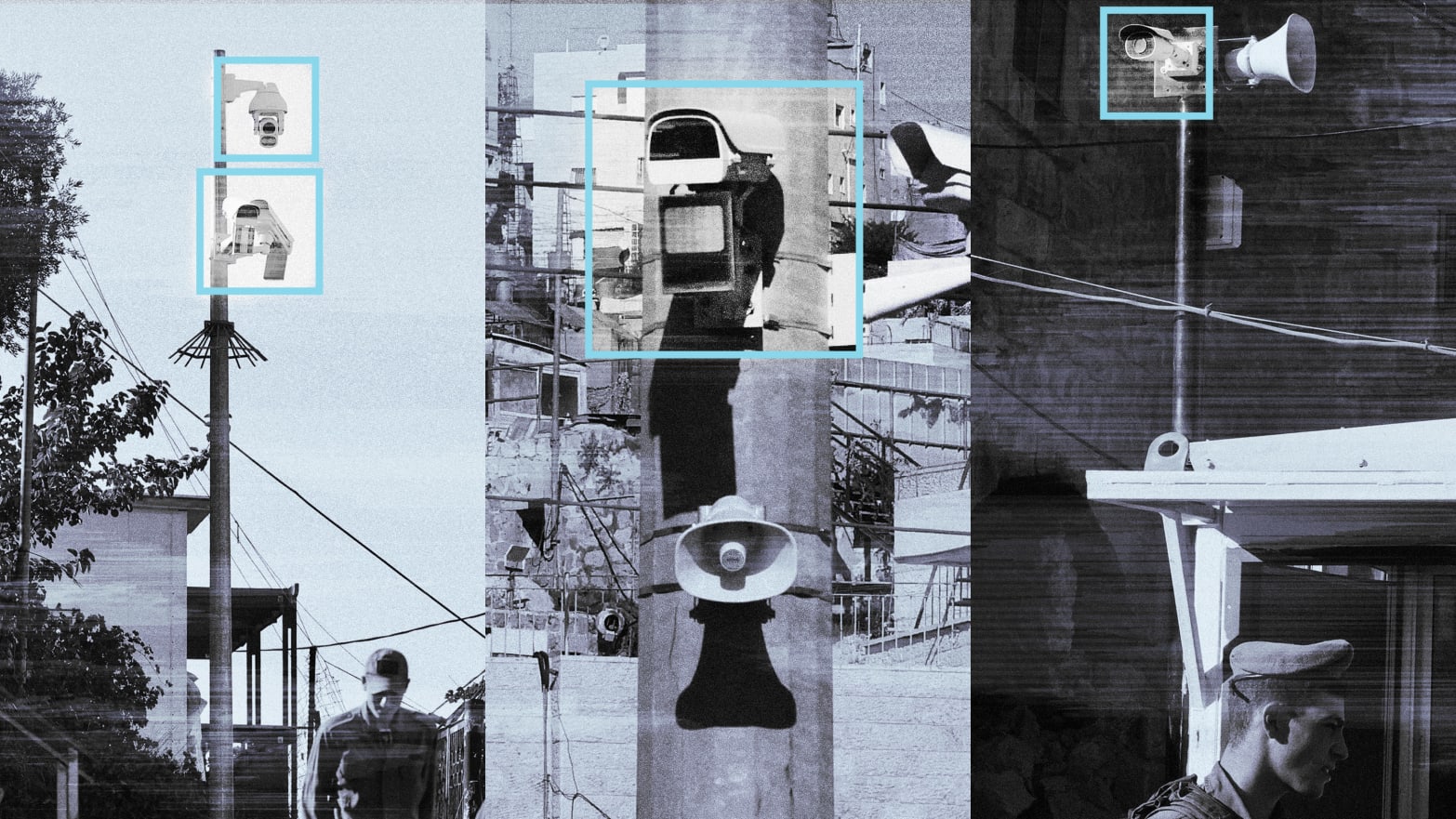
Photo Illustration by Erin O’Flynn/The Daily Beast/Getty Images
Imagine walking the streets of your neighborhood when a group of fully armed soldiers stops you and demands to take photos of your face. Imagine trying to get out of the city for a day, but to leave, you need to cross a computerized checkpoint that scans your face to decide whether to let you through—while recording your every move. Imagine you’re a farmer, tending your sheep, when a foreign soldier shows up and takes a picture of your face. Once your picture loads on his phone, he treats you like a terrorist and detains you on the spot.
This is not a sequel to 1984, nor a nightmare episode of Black Mirror. This is the day-to-day life of a Palestinian in the occupied West Bank city of Hebron.
Amnesty International recently published “Automated Apartheid,” a report detailing Israel’s extensive use of digital and biometric surveillance technologies in the occupied Palestinian territories. The report uses Hebron and East Jerusalem as case studies through which to elaborate on the different systems Israel uses to surveil Palestinians.
One of the main revelations in the report is about a new, highly invasive surveillance system known as “Red Wolf,” which we at Breaking the Silence have recently heard about in testimonies we’ve received from soldiers who have used this technology.
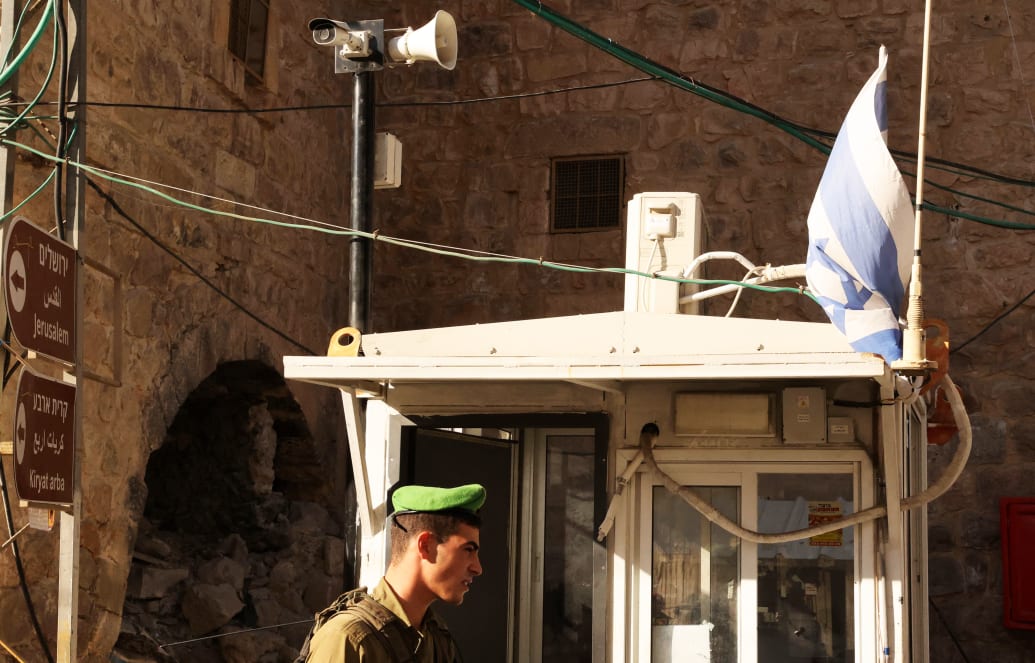
An Israeli soldier stands under a surveillance camera at a checkpoint in the flashpoint Palestinian city of Hebron on Nov. 9, 2021.
Hazem Bader/AFP via Getty Images
“Red Wolf” uses cameras installed at checkpoints and identifies Palestinians automatically using facial recognition software—without their knowledge, let alone consent—to instruct soldiers on how to treat them.
This latest revelation represents another facet of the facial recognition and mass surveillance systems employed in the city of Hebron, alongside “Blue Wolf,” a smartphone facial recognition app that matches photos of Palestinian civilians taken by soldiers with data we maintain in our database on each and every Palestinian resident of the occupied territories. Yet another surveillance system, known as “Hebron Smart City”—a network of highly invasive and sophisticated cameras which are spread throughout the city—makes it impossible for Palestinians in Hebron to escape the watchful eye of the occupation.
All these systems have significant implications on Palestinians’ basic human right to privacy. But perhaps even more significantly, they are also a means of control.
In the last 56 years, Israel’s military control over Palestinians has expanded extensively. In the name of “defense,” we carry out home demolitions, enable settler violence, violently disperse protests, and hold ourselves to extremely permissive standards in our rules of engagement.
As my IDF commander told me the last time I served in the occupied territories, these methods are used to “make sure the entire Palestinian population feels like they cannot lift their heads up.” Since then, our testifiers tell us this is still very much the norm.
Testimonies we collected from former soldiers, drawn upon in Amnesty’s new report, reveal what Palestinians have already known for years: that the Israeli security forces have an insatiable desire for their most private information. What these revelations demonstrate is how we are expanding our control over Palestinians beyond physical space and into the digital sphere.
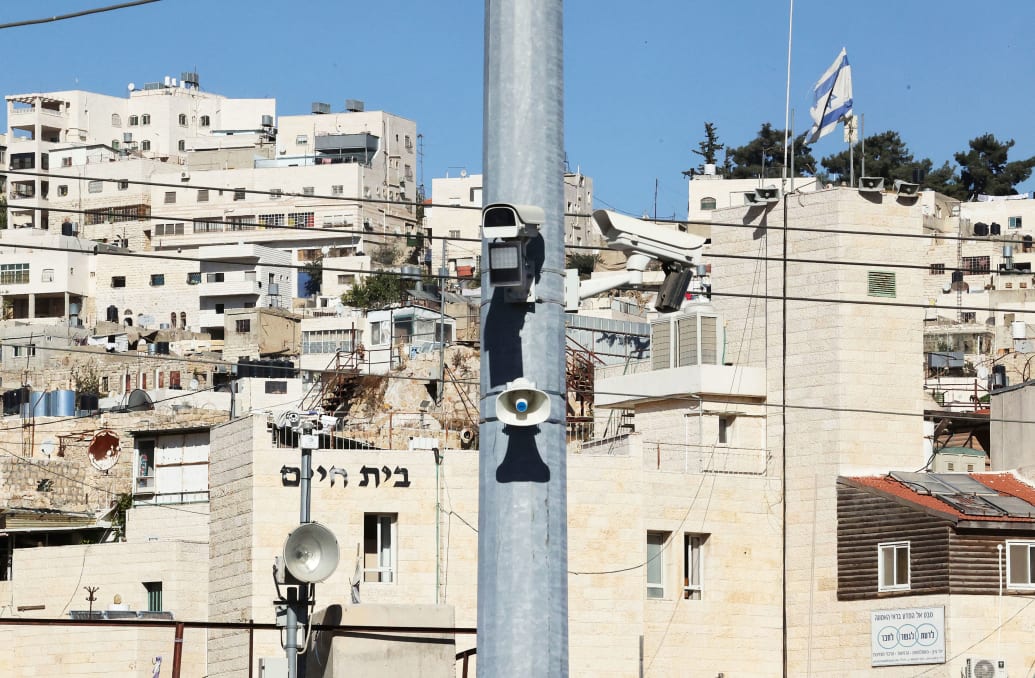
A surveillance camera at a checkpoint in the flashpoint Palestinian city of Hebron on Nov. 9, 2021.
Hazem Bader/AFP via Getty Images
Today, not only do we control the cities, towns, and homes of Palestinians, we now also control their personal data. Palestinians’ biometric information is stored on Israeli databases, without their consent, with zero transparency, and most importantly—without their ability to exercise any political right within the regime which decided to collect their information in the first place.
A Palestinian living under Israeli military control today walks around knowing that our military can not only invade their home whenever we want, we can now also track them wherever they are.
Surveillance has been a key feature of the occupation for many years. Specifically in Hebron, the largest Palestinian city in the West Bank and the only one with a big Israeli settlement presence in its city center, this technology is most prominent. Hebron has always been used as an “occupation lab” of sorts, where new practices and technologies are tried and tested before being rolled out in the rest of the occupied Palestinian territories and, in some cases, also in Israeli towns and cities.
If you ask Israeli authorities to justify all this, they will surely answer that these measures are necessary for “security reasons.” We’ve heard this answer a thousand times, in a thousand different contexts. It is exactly how Israel justifies every element of the occupation.
Most Israelis, unfortunately, have unquestioningly internalized this logic. Sometimes, the authorities will go to even further lengths, saying that surveillance systems amount to “efforts to improve the quality of life for the Palestinian population.” In other words, our total control over every element of the lives of the people we hold under military dictatorship—including storing their biometric data—is for their own good.
But “security” doesn’t justify the extreme extent to which these systems are deployed on the Palestinian population; after all, they are used on everyone, from children to the elderly, regardless of “security considerations.” We monitor peace activists, just as we monitor Palestinians active in violent resistance.
Crucially, these systems are not operating in a democratic capacity—there are no checks and balances, no regulations designed to protect the population, no protection from arbitrary or targeted abuse. As with everything else in the world of military occupation, what the commander says, goes.
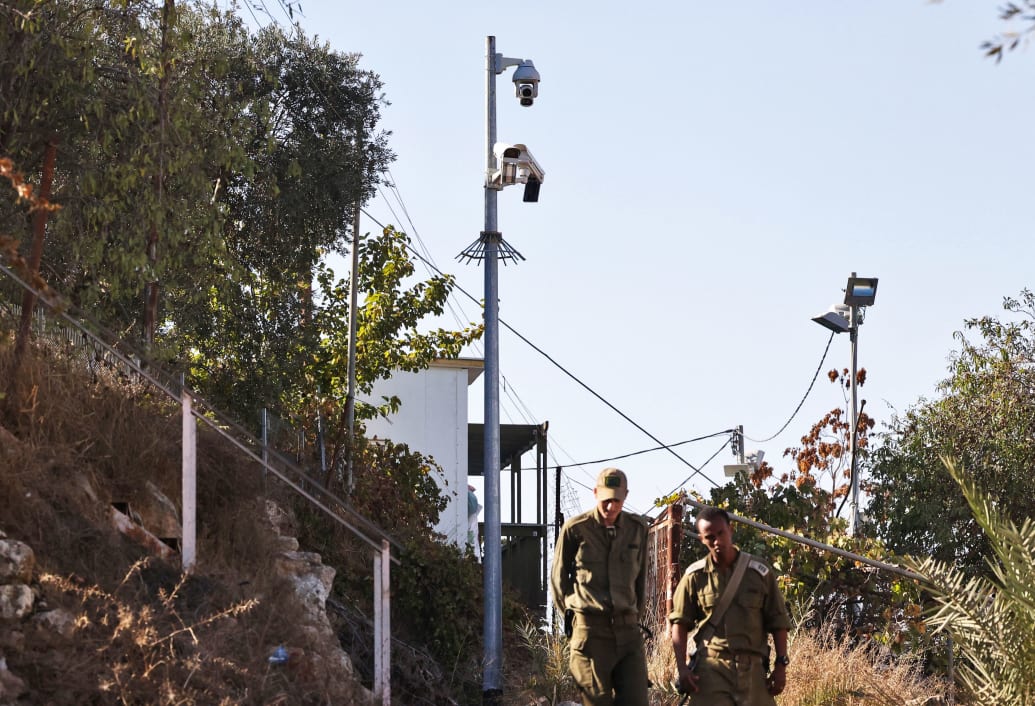
Israeli soldiers walk past surveillance cameras in the flashpoint Palestinian city of Hebron on November 9, 2021.
HAZEM BADER/AFP via Getty Images
We, as Israeli citizens, in whose name these human rights violations are being carried out, need to do everything in our power to end these practices.
But it’s not our problem alone. As portrayed in the report, this is an international effort. Companies from around the world who are responsible for developing this technology are working hand in hand with Israeli state agencies and the Israeli army in order to control Palestinians in ways that would shame some of the world’s most vicious dictatorships. The “occupation lab” works in the international community’s interest, too: technology that is tried and tested here can very easily end up in other places.
Meanwhile in Israel, hundreds of thousands of Israelis are protesting every week under the slogan “resisting dictatorship,” referring to the judicial overhaul Netanyahu and his government are trying to pass. We must seize this opportunity not only to fight for our own rights as Israeli Jews, but to talk about the dictatorship we’ve already been enforcing for years—the one in which we hold millions of Palestinians under our military control and surveil their every move.


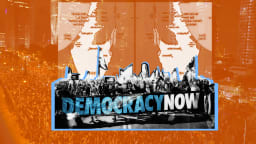


Geen opmerkingen:
Een reactie posten
Opmerking: Alleen leden van deze blog kunnen een reactie posten.